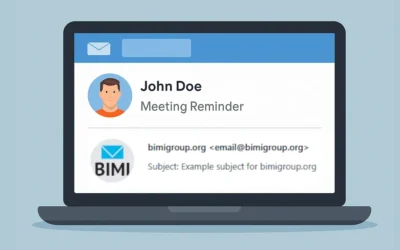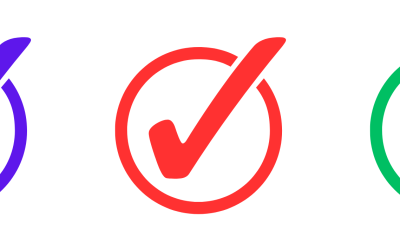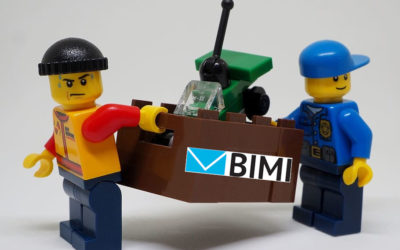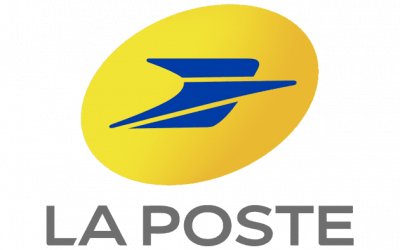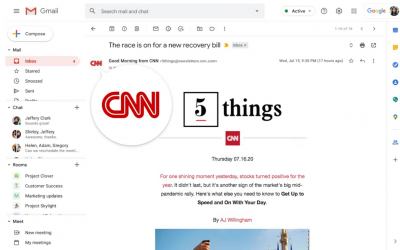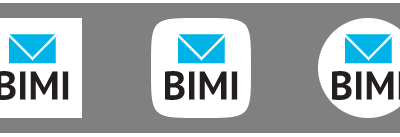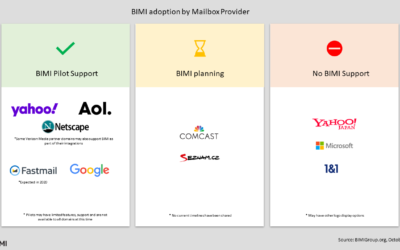Get to know BIMI
The official home of the AuthIndicators Working GroupUnderstanding the avp tag in BIMI records
When it comes to BIMI, most marketers know the basics: the v=BIMI1 version tag, the l= location for your logo, and the optional a= evidence tag that points to your Mark Certificate (MC). What often slips under the radar is a newer addition, the avp tag, introduced in...
Understanding BIMI Certificate Types
When implementing Brand Indicators for Message Identification (BIMI), verifying your logo with a BIMI Certificate brings additional benefits for recipients at mailbox providers globally. There are three types of assertion for logos: Self-assertion, Common Mark...
Announcing Common Mark Certificates
The AuthIndicators Working Group (BIMI Group) has introduced a new capability to enhance Brand Indicators for Message Identification (BIMI), which Google is now officially supporting in Gmail. This update extends beyond Verified Mark Certificate (VMC), which requires...
SVG Issues: Solutions for Ensuring Tiny-PS Compliance
There are many reasons why your SVG might fail Tiny-PS compliance within one of the online BIMI validators, and many of these issues stem from the requirement that all images meet the Tiny-PS standard. What is SVG Tiny-PS? SVG Tiny PS (Portable/Secure) is a...
How and Why to Implement BIMI Selectors
Using an idea borrowed from DomainKeys Identified Mail (DKIM), BIMI supports the use of selectors, which are intended to allow a brand to easily use different logos for the same domain. In this guide, we’ll explain BIMI selectors, discuss why a brand might want...
Update on Check Marks
The AuthIndicators Working Group is aware of recent press reports that have raised concerns regarding BIMI and newly released verification check marks that various mailbox providers are adding to their email clients in concert with display of BIMI logos. We want to...
Where Is My BIMI Logo Displayed?
You’ve gone through the BIMI Implementation Guide and everything looks good on the BIMI Inspector, and now you want to see BIMI in action. Where should you expect your logo to appear? Each participating mailbox provider determines where BIMI logos show up in their...
BIMI Rolling Out to All Apple Inboxes in Fall 2022
Authentication standard drives email ecosystem closer to a universal “no auth, no entry” philosophy SAN FRANCISCO — September 12, 2022 — Apple has joined the growing list of email technology companies implementing Brand Indicators for Message Identification (BIMI), a...
La Poste Announces Support for BIMI
As of August 29, 2022, Laposte.net will begin to display Iogos identified within a BIMI record. They will display BIMI logos accompanied by a Verified Mark Certificate (VMC) issued by either DigiCert or Entrust, as well as those without one (a.k.a. a “self-asserted”...
VMCs Aren’t a Golden Ticket for BIMI Logo Display
Now that you have obtained a Verified Mark Certificate (VMC) to enable BIMI logo display within major mailbox providers (e.g. Gmail and Fastmail), you may be wondering why your logo isn’t automatically appearing in their email clients. Even though you’ve fully...
How BIMI Avoids Unauthorized (or Fraudulent) Use of Logos
Verifying that a logo is authorized for use by a specific domain has been at the center of the debate since the idea for BIMI was first discussed. In fact, that very issue is why it has taken the past 7 years to develop the specification. Since this was...
An Introduction to BIMI Selectors
When you hear the term “selectors” and you work in the email industry your mind likely drifts to thoughts about DKIM and how different records can be separated by the use of a selector for different types of messages. One selector for corporate, one for support...
BIMI Open Source Tools for Receivers
As BIMI records are accepted by Yahoo! (and other Verizon Media services), Fastmail, and now Gmail, other mailbox providers may be interested in adding support for BIMI. In an effort to support their effort, open source milter-based tools have been made...
BIMI for Non-Trademarked Logos
While some mailbox providers (e.g. Yahoo, Fastmail) have accepted “self-asserted” BIMI records for a couple of years, some (e.g. Gmail) are requiring Verified Mark Certificates (VMCs) to display BIMI logos. Our understanding is that all of the participating mailbox...
Verified Mark Certificates (VMC) and BIMI
There are currently two classes of BIMI records. The simplest is considered to be “self-asserted,” meaning that you publish your logo without it being verified as belonging to your domain. The only requirement for self-asserted BIMI logos is that they be in SVG P/S...
BIMI Working Group Announces Gmail General Availability of BIMI
The AuthIndicators Working Group is thrilled to announce that Gmail is now widely supporting BIMI, making it accessible to nearly 2 billion inboxes and bringing years of efforts and collaboration to fruition. Brands’ abilities to control their logos when sending...
BIMI: Images and resolutions
Looking back at the early stages of BIMI’s development the group considered a number of options for the right type of image file. The intention was to find something that would render the same at 100x100 pixels and 4000x4000 pixels. Vector graphics by nature...
I created a BIMI record – Now What?
Congratulations on creating your BIMI record! At this point, we’ll assume that you’ve created an SVG Tiny Portable/Secure (SVG P/S) version of your logo, you’re hosting it on a secure web server, and you’ve added the URL in your BIMI record. You’ve probably even...
SVG Conversion Tools Released
The logo referenced by a Brand Indicators for Message Identification (BIMI) record must be in a specific format. It's based on the Scalable Vector Graphic (SVG) Tiny 1.2 format specified by the W3C, with fewer allowed elements. The version supported by BIMI has been...
BIMI Adoption – October 2020
Building on our reporting from June 2020 we have updated the BIMI support infographic with changes over the last quarter. The significant changes you might note are: Verizon Media domains including AOL, and Netscape (*Other Verizon media properties may also...

